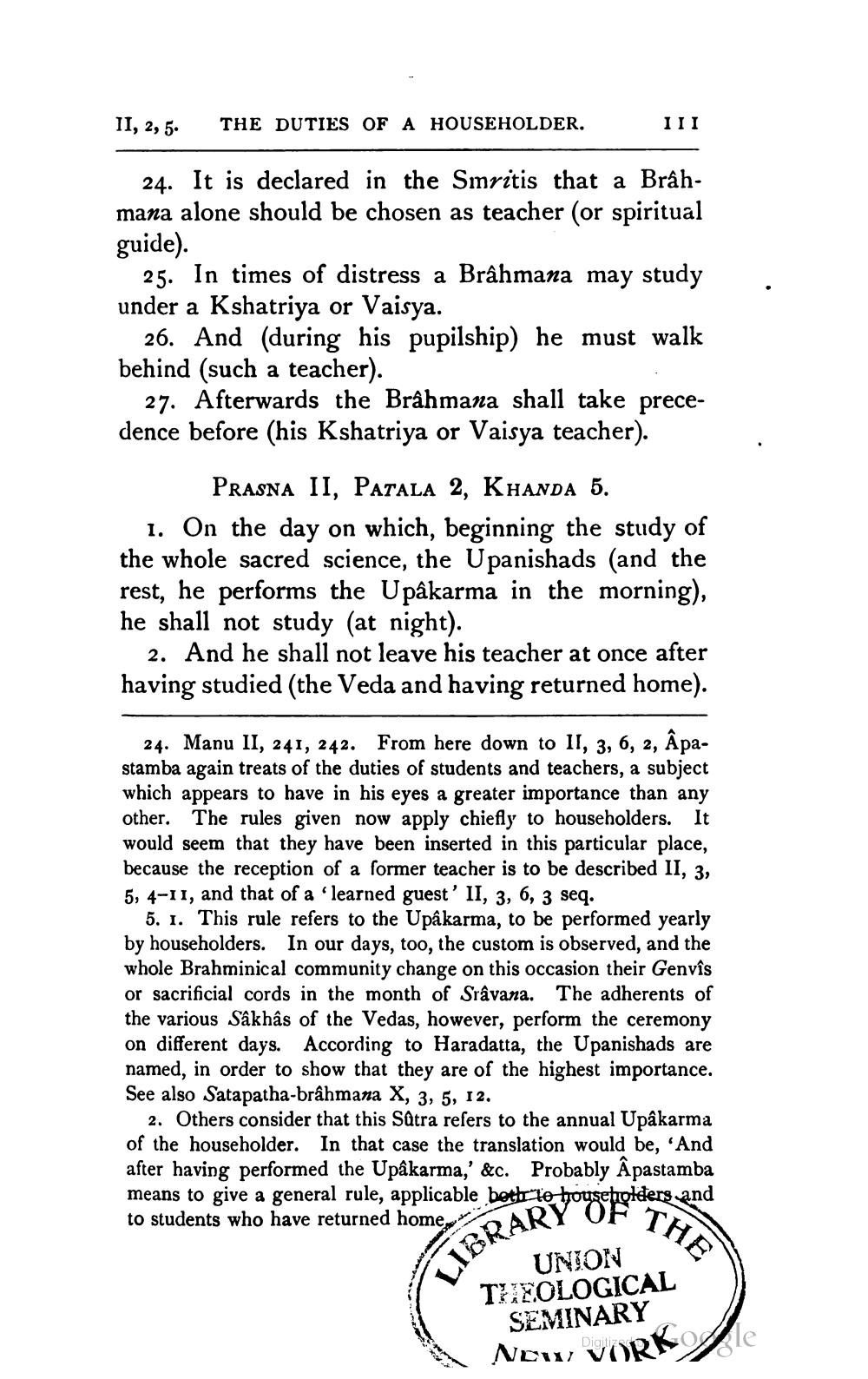________________
II, 2, 5.
24. It is declared in the Smritis that a Brâhmana alone should be chosen as teacher (or spiritual guide).
25. In times of distress a Brâhmana may study under a Kshatriya or Vaisya.
THE DUTIES OF A HOUSEHOLDER.
III
26. And (during his pupilship) he must walk behind (such a teacher).
27. Afterwards the Brahmana shall take precedence before (his Kshatriya or Vaisya teacher).
PRASNA II, PATALA 2, KHANDA 5.
1. On the day on which, beginning the study of the whole sacred science, the Upanishads (and the rest, he performs the Upâkarma in the morning), he shall not study (at night).
2. And he shall not leave his teacher at once after having studied (the Veda and having returned home).
24. Manu II, 241, 242. From here down to II, 3, 6, 2, Âpastamba again treats of the duties of students and teachers, a subject which appears to have in his eyes a greater importance than any other. The rules given now apply chiefly to householders. It would seem that they have been inserted in this particular place, because the reception of a former teacher is to be described II, 3, 5, 4-11, and that of a 'learned guest' II, 3, 6, 3 seq.
5. 1. This rule refers to the Upâkarma, to be performed yearly by householders. In our days, too, the custom is observed, and the whole Brahminical community change on this occasion their Genvîs or sacrificial cords in the month of Srâvana. The adherents of the various Sâkhâs of the Vedas, however, perform the ceremony on different days. According to Haradatta, the Upanishads are named, in order to show that they are of the highest importance. See also Satapatha-brâhmana X, 3, 5, 12.
2. Others consider that this Sutra refers to the annual Upâkarma of the householder. In that case the translation would be, 'And
after having performed the Upâkarma,' &c. Probably Âpastamba means to give a general rule, applicable both to householders and to students who have returned home
OF
THE
LIBRARY
UNION THEOLOGICAL SEMINARY
NEW WORKle




